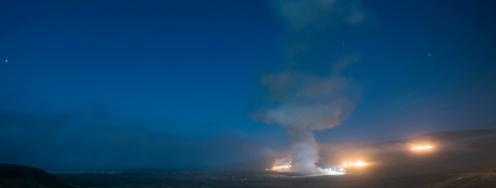President Objects to Arms Control Restrictions in Defense Authorization Act
On the radar: NDAA signing statement; Un-stalling negotiations; Safety concerns at Bushehr; Context of Kim’s speech; and Air Force opens new missile school.
On the radar: NDAA signing statement; Un-stalling negotiations; Safety concerns at Bushehr; Context of Kim’s speech; and Air Force opens new missile school.
January 3, 2013 | Edited by Benjamin Loehrke
NDAA Statement - President Obama signed the $633 billion FY2013 National Defense Authorization Act (NDAA) into law last night. In his signing statement, the President objected to several of the bill’s restrictions related to arms control that the administration assesses could “interfere with [the president’s] constitutional authority to conduct the foreign relations of the United States.”
--The statement also praises a provision in the fiscal cliff deal that amended a problematic section of the NDAA that would have impeded implementation of the New START treaty and hindered “the Executive’s ability to determine an appropriate nuclear force structure.” Full statement here. http://1.usa.gov/XmUNUc
An offer for Iran - The Obama administration and its diplomatic partners are looking to resume negotiations with Iran this spring, though a breakthrough seems unlikely. In an editorial, The Washington Post suggests that “if negotiations remain stalled, Mr. Obama should consider making Iran a comprehensive offer that would permanently restrict its uranium enrichment and provide for intensive international monitoring in exchange for the lifting of sanctions. That would have the advantage of confronting the regime with a stark choice — and making clear whether a diplomatic solution exists.” http://wapo.st/S6V3VE
Welcome to Early Warning - Subscribe to our morning email or follow us on twitter.
--Have a tip or feedback for the editor? Email earlywarning@ploughshares.org earlywarning@ploughshares.org. Want to support this work? Click here.
Tweet - @CFR_org: This Day in History: 1/3/93 — US Pres. George HW Bush and Russian Pres. Boris Yeltsin sign the 2nd Strategic Arms Reduction Treaty in Moscow.
Scheduling - The P5+1 and Iran are negotiating over scheduling the next round of nuclear talks. Iran’s nuclear negotiator Saeed Jalili signaled a receptiveness to talks, saying "The venue and the time...have not been finalized but we hope that these talks will start very soon." From Reuters. http://reut.rs/VxF81i
Tough times in Tehran - Iran is in for a rough 2013, as the Iranian regime braces for a presidential election during a time of intensifying public malaise, political strife among the elite, and economic plight. “Home-grown problems could outweigh the regime's foreign policy woes,” assesses Alireza Nader at Frontline. http://to.pbs.org/YYhwkM
”The Next Chernobyl” - Iran’s Bushehr nuclear reactor could become the most dangerous part of Iran’s nuclear program. “Haphazard planning and ongoing technical problems mean it could be the next Chernobyl, igniting a humanitarian disaster and explosive economic damage across the oil-rich region,” write Khosrow Semnani and Gary Sandquist in The New York Times. Making matters worse, Bushehr sits on an active fault line.
--The authors recommend that the IAEA initiate a comprehensive assessment of vulnerabilities at Bushehr, that Iran sign the 1994 Convention on Nuclear Safety, and that the international community craft an emergency response strategy in case of nuclear accidenet at Bushehr. http://nyti.ms/WnnrOK
Tweet - @ScovillePF: Recent grads may apply by Jan. 14 to work w/top NGOs in DC for 6-9 months on intl peace & security. http://t.co/yPBclJNW
Kim’s speech - North Korea watchers are skeptical about the meaning of seemingly conciliatory lines toward South Korea in a recent speech by Kim Jong-un. “There is nothing new here. The style of the speech is a little less verbose than in the past, but the content is essentially the same,” Victor Cha told Global Security Newswire.
--Experts suggest that the speech is part of the North’s move to engage South Korea’s newly elected president Park Geun-hye. Full article here. http://bit.ly/TKsjPD
ICBM school - “The Air Force has opened a $4.2 million Nuclear Security Tactics Training Center in Guernsey, Wyo., so that the service’s 620th Ground Combat Training Squadron can train more airmen to protect the nation’s nuclear-tipped ICBM arsenal,” reports Mark Thompson at Battleland. http://ti.me/VyD7Q4



